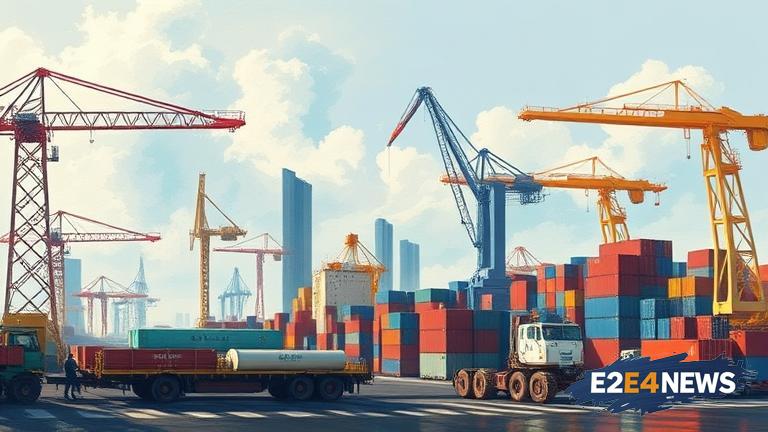The World Trade Organization (WTO) is facing a critical juncture as global trade tensions continue to escalate. The rise of protectionism and nationalism has led to a surge in trade disputes, with countries imposing tariffs and other trade barriers on each other. The WTO, established in 1995, is the primary international organization responsible for promoting free trade and resolving trade disputes. However, its effectiveness has been called into question in recent years, with some countries questioning its ability to address the complex trade issues of the 21st century. The WTO’s dispute settlement body has been paralyzed since 2019, when the US blocked the appointment of new judges to the appellate body. This has led to a backlog of trade disputes, with countries seeking alternative mechanisms to resolve their differences. The US-China trade war has been a major contributor to the current trade tensions, with both countries imposing tariffs on each other’s goods. The EU has also been involved in trade disputes with the US, particularly over issues such as agriculture and digital taxation. Other countries, such as India and Brazil, have also been affected by the rise of protectionism. The WTO has been trying to reform itself to address these challenges, with a focus on improving its dispute settlement mechanism and promoting greater transparency and cooperation among its members. However, these efforts have been slow to materialize, and the organization faces significant challenges in the coming years. The rise of emerging economies such as China and India has also led to a shift in the global trade landscape, with these countries seeking to play a greater role in international trade governance. The WTO must adapt to these changes and find ways to promote greater cooperation and collaboration among its members. The organization has also been criticized for its lack of transparency and accountability, with some countries feeling that their interests are not being represented. The WTO has responded to these criticisms by launching a number of initiatives aimed at promoting greater transparency and inclusivity. Despite these challenges, the WTO remains a critical institution for promoting global trade and economic cooperation. Its members must work together to address the current trade tensions and find ways to promote greater cooperation and collaboration. The WTO’s success will depend on its ability to adapt to the changing global trade landscape and promote greater transparency and accountability. The organization must also find ways to address the complex trade issues of the 21st century, such as digital trade and climate change. The rise of protectionism and nationalism poses a significant threat to the global trading system, and the WTO must find ways to promote greater cooperation and collaboration among its members. The organization’s ability to resolve trade disputes and promote greater transparency and accountability will be critical in the coming years. The WTO’s members must work together to address the current trade tensions and find ways to promote greater cooperation and collaboration. The organization’s success will depend on its ability to adapt to the changing global trade landscape and promote greater transparency and accountability. The WTO faces a critical juncture, and its ability to address the current trade tensions will have a significant impact on the global economy. The organization must find ways to promote greater cooperation and collaboration among its members, and address the complex trade issues of the 21st century. The rise of protectionism and nationalism poses a significant threat to the global trading system, and the WTO must find ways to promote greater cooperation and collaboration among its members. The organization’s ability to resolve trade disputes and promote greater transparency and accountability will be critical in the coming years.
